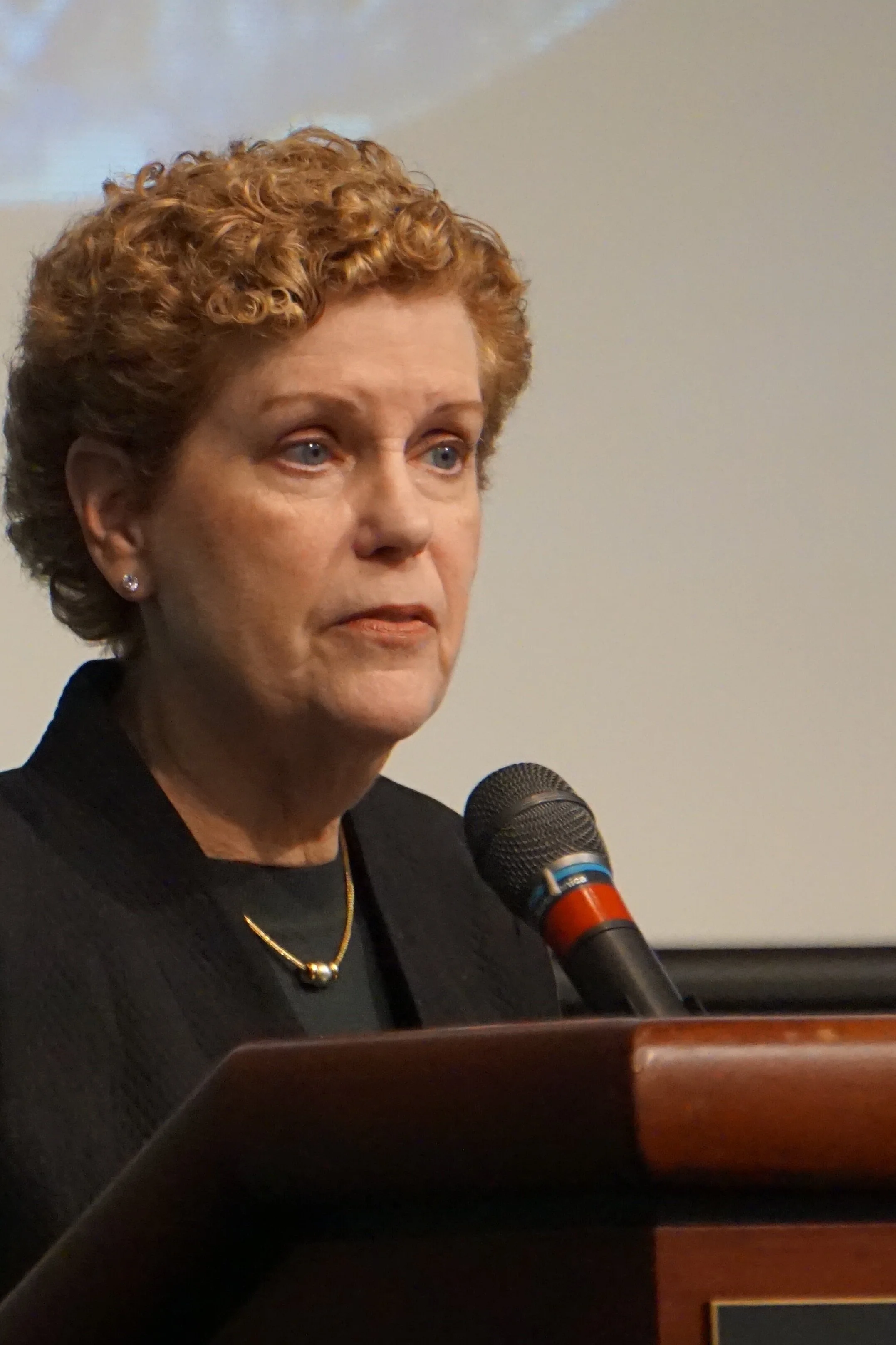by Michael Hall
Women have played important — if largely unrecognized— roles throughout our country’s history, from colonial America to the civil rights movement. Jewish women are no exception, says Pamella Nadell, a leading scholar on Jewish history and gender studies.
Nadell recently spoke at UC Santa Barbara’s Corwin Pavilion on “America’s Jewish Women” as part of the Herman P. and Sophia Taubman Foundation Endowed Symposia in Jewish Studies.
The symposia, which are open to the public, first began in the fall of 1997 and host artists, scholars, and activists from all walks of Jewish life.
Nadell directs the Jewish Studies Program at American University in Washington, D.C., and is the Patrick Clendenen Chair in Women’s and Gender History. Her most recent book, America’s Jewish Women: A History from Colonial Times to Today, discusses how Jewish women have balanced social activism with maintaining their cultural identities.
Photo by Maeve Devoy.
“What did it mean for these women to be Jewish women,” Nadell asked. “How do we understand how being a Jew and Judaism impact their lives?”
In early America, Judaism was some women’s entire existence. “They would live from Sabbath to Sabbath, from holiday to holiday. Everything defined them as Jews. It was at the core of their lives,” she said.
The main force driving these women was to serve their families and their communities.
For other women, however, Judaism as a religion was not as central to their identities. “Being a Jew was important to them, but I like to think of it more as a powerful sense of Jewishness.” For these women, their beliefs determined things like who they would marry and which neighborhoods they lived in, but their faith was not all encompassing.
For a final group of women, Jewishness was incidental to their lives. But those women, Nadell argues, may be more influenced by their Jewish heritage than they realize, “If you think you can be a little bit Jewish, then you think you can be a little bit pregnant.”
Nadell recounted the stories of many Jewish women of great importance in American history, from Emma Lazarus who wrote the poem inscribed on the base of the Statue of Liberty to Ruth Handler, the creator the Barbie doll.
Beginning around the turn of the 20th century, groups of Jewish women began forming what Nadell calls “powerhouse” Jewish women’s organizations.” These groups — many of which still exist today — were dedicated to advocating for the rights of not only American Jewish women, but for all Americans.
Hannah Solomon founded one such group in 1893. Solomon created the National Council of Jewish Women, an organization which initially fought against international sex trafficking rings that targeted vulnerable immigrant women.
These women did not always need to start a formal organization to get their points across, however. When the price of kosher meat soared from 12 cents per pound to 18 cents per pound, the Jewish women of Manhattan boycotted the butchers. Some protesters even broke into the shops, stole the meat, doused it in kerosene and set it on fire.
Nadell has a theory about why women ventured into political organizing around that time. With the economy growing and birthrates dropping, women were able to think beyond merely getting through the day, she said.
“In 1800, the average white woman in America gave birth to seven children,” Nadell said. “By 1900, the average white woman was giving birth to 3.5 children. [Middle-class women] were then encumbered with having children for less time, and they wanted to do more with their lives than fill it with pints of leisure.”
Michael Hall is a fourth year Film and Media Studies major at UC Santa Barbara. He is a Web and Social Media Intern for the Division of Humanities and Fine Arts.


